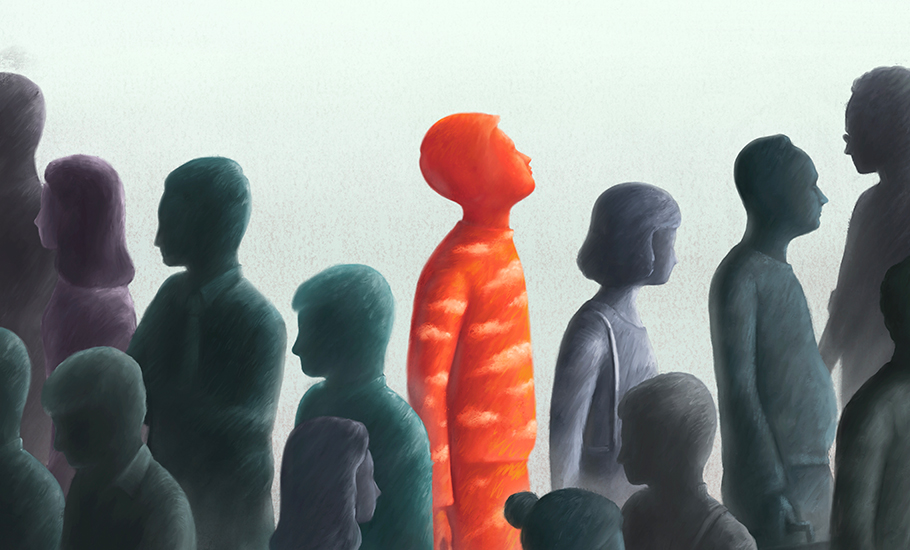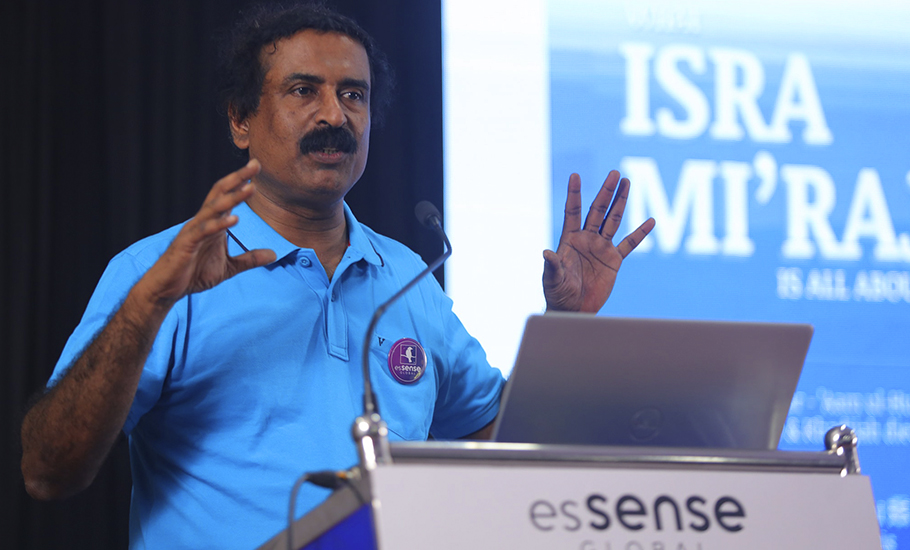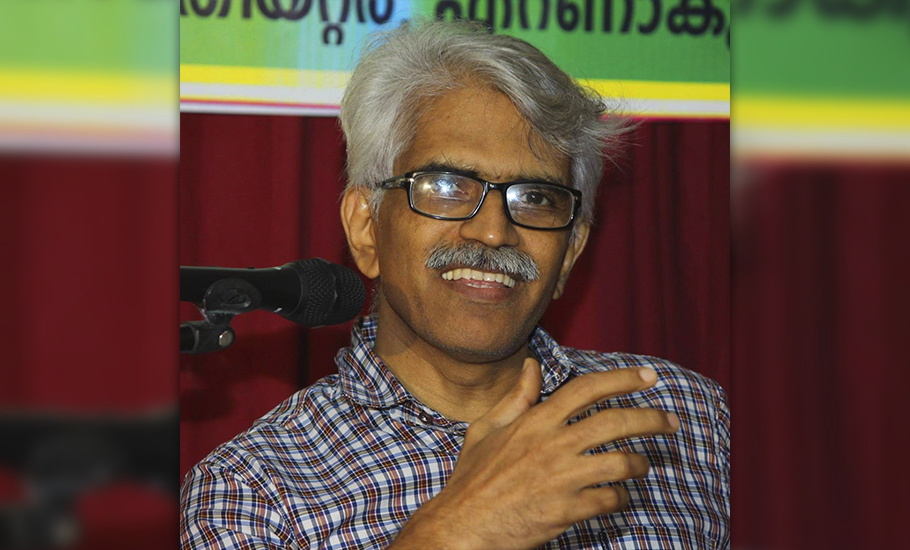
- Home
- News
- Analysis
- States
- Perspective
- Videos
- Education
- Entertainment
- Elections
- World Cup 2023
- Features
- Health
- Business
- Series
- Economy Series
- Earth Day
- Kashmir’s Frozen Turbulence
- India@75
- The legend of Ramjanmabhoomi
- Liberalisation@30
- How to tame a dragon
- Celebrating biodiversity
- Farm Matters
- 50 days of solitude
- Bringing Migrants Home
- Budget 2020
- Jharkhand Votes
- The Federal Investigates
- The Federal Impact
- Vanishing Sand
- Gandhi @ 150
- Andhra Today
- Field report
- Operation Gulmarg
- Pandemic @1 Mn in India
- The Federal Year-End
- The Zero Year
- Premium
- Science
- Brand studio
- Home
- NewsNews
- Analysis
- StatesStates
- PerspectivePerspective
- VideosVideos
- Entertainment
- ElectionsElections
- Sports
- Loading...
Sports - Features
- BusinessBusiness
- Premium
- Loading...
Premium

How the turmoil in the rationalist movement in Kerala is shaping up

Around 10,000 people were in attendance for Litmus, an event hosted by the free thinker’s collective esSENSE Global, billed as ‘the world’s largest atheist meet in god’s own country’, last October in Kochi. It was an annual gathering of atheists who describe themselves as ‘freethinkers with a scientific temperament’. Apart from the discussions, what was striking about...
Around 10,000 people were in attendance for Litmus, an event hosted by the free thinker’s collective esSENSE Global, billed as ‘the world’s largest atheist meet in god’s own country’, last October in Kochi. It was an annual gathering of atheists who describe themselves as ‘freethinkers with a scientific temperament’. Apart from the discussions, what was striking about the event was the rise in number of attendees.
Litmus was first held in Thiruvananthapuram in 2018 and the second meeting was held in Kozhikode, the next year. In the first edition, more than 3,000 people attended. The number rose to 7,000 the following year and to 10,000 the next year, according to the organisers of the Litmus events.
The brand of atheism propagated by this section of ‘free thinkers’ started getting traction in Kerala around the beginning of this century. But it was after 2010 that it took an organisational form under the banner of esSENSE.
The rationalist movement in Kerala has a long and rich history that goes back to the Sahodara Sangham (Fraternity Forum), formed by K Ayyappan (Sahodaran Ayyappan) on May 29, 1917 at Cherai, in Ernakulam. The ‘Mishra Bhojanam’ (community eating without caste discrimination) movement was promoted by this fraternity forum, which at the time was both unthinkable and extremely revolutionary.
These movements paved the way for Yukthivadi Sangham, a rationalist group, to begin operations in 1967. The socio-religious limitations and hardships placed on the non-caste Hindus at the time gave rise to the spirit of rationalism. Ayyappan gave the journal, which served as the outlet for his radical ideas, the name ‘Sahodharan’ basing it on the idea of universal brotherhood. Later, he launched the Yuktivadi magazine.
Initially and into the 1970s, the rationalist movement walked hand in hand with Left political ideology particularly the Communist movement in the state. Even though they lost the whole-hearted support of the mainstream Left parties (read CPI-M and CPI) owing to the administrative pressure as they have been enjoying power politics, the rationalists continued their work by organising campaigns against blind faith and debunking religious practices among other things.
“The rationalists in Kerala under the banner of the organisation Kerala Yuktivadi Sangham’ had been dogmatic and ideologically biased. Those who wanted to associate the idea of rationalism but could not subscribe to the communist ideology were left with no option.
This is how the neo-atheist groups started to emerge, in the mid aughts. In a post Google society, its growth was phenomenal,” NS Santhosh, a free thinker from Alappuzha, who is a district-level leader of the Congress-backed government employees’ association, told The Federal.
Kerala Free Thinkers Forum, a broader network of rationalists cutting across political differences, was formed as a result of this ideological fight.
During the mid aughts, with western rationalist and neo-atheist school of thoughts getting traction among the youth, many online discussions were started in small and closed forums. Groups like Freethinkers and Swathanthralokam (free world) contributed immensely towards the formation of a new rationalist sensibility among the youth in Kerala.
“All these ‘rationalists’ from different spaces we see now, were part of a group named Swathanthralokam once. It was more of a gathering of self-declared rationalists who found solace in finding like-minded people and some belongingness, in realising we are not alone.
Initially it was a closed Facebook group. We had daily internal discussions on different topics with a rationalist/atheist perspective. People discussed things, argued, sometimes fought furiously, but still there was a feeling we all are in the same space,” recalls Anupama Anamangad, a Chennai-based IT engineer who was an active free thinker.
This very open discussion led to another split in the group as differences about politics, gender, caste and class started popping up. In 2013, C Ravichandran, a professor of English and public speaker, who had been leading the group, founded esSense.

“Ravichandran was a regular speaker at the programmes of Kerala rationalist association and he used to deliver long speeches about scientific temper based on European neo atheist thoughts, using audio-visual aids. Maybe he was the first to use this technology for that kind of presentations. Many young people were attracted to his presentations as those were on liberal subjects. It was he who founded esSense making use of his online following,” says Santhosh NS.
“Essense global (esSense was later split and Ravichandran and his followers started esSense global) is not a rationalist movement. It’s a free thinker’s movement. The founder of the rationalist movement in Kerala, Sahodaran Ayyappan, was the leader of SNDP (Sree Narayan Dharma Paripalan Yogam) who argued that Islam is a better choice for lower caste Hindus. He had laid the foundation for temples, and argued that a rationalist could be a believer too. The legacy rationalists in Kerala converted to Islam first, then became propagandists of the Communists – that was their syllabus. They were a combination of religious labour, caste labour and party labour. esSense is against all these three,” Ravichandran told The Federal.
From its inception, esSence has been drawing flack for its lack of focus on social justice. Critics argue that the movement is focusing too much on attacking religion, Islam in particular, and not enough on addressing the social and economic issues or the contemporary political reality, especially the oppressive angle of the caste system.
According to many critics, this could only result in the creation of atheist cults, which will not be of any help to the secular fabric of the country.
“We started noticing the change in tone of discussions happening in the online group. The first issue was related to misogyny. There were people who used science as a justification for misogyny, along with others. A section of the members of the group used science and theory of evolution as a justification for inequalities such as race, caste, colourism etc. Another hot topic of contention was reservation. Those days, people like Ravichandran did not attack it directly, they were milder in their stands and arguments. That’s when, in 2013, the defining moment arrived,” recalls Anupama Anamangad.
“We had our first Swatantralokam (free world) meet where Ravichandran delivered one of his presentations titled Wife of the Oracle propagating outright misogyny. Our political environment had been undergoing a change then with BJP gearing up to power. Even though a lot of people started publicly exposing their right-wing stance, their leaning stood clear on issues like discrimination, reservation etc. By then they had formed esSence, a separate rationalist group where they could practice misogyny and other forms of bigotry openly,” Anupama added.
“The Right-wing political illusions and the economic logic of corporate capitalism have been internalised by the ‘neo atheist’ groups. A growing anti-Muslim and anti-Communist ideological discourse is being propelled by their retrograde thought process. These modern-day slaves of imperialism include Richard Dawkins to C Ravichandran,” said Gulab Jan, an independent journalist and publisher, who has recently published a book on neo-atheism critic.
“The Islamo-Left rationalists in Kerala are spreading fear that the Indian Muslims are going to be subjected to genocide. This is not good for the society. We support coexistence of different religions. We severely criticise Hindutva. We believe in kicking the ball not the foot. Our slogan for the Litmus was Islam is toxic, Muslims are lovely. People can be redeemed and reformed through education, that is what we think,” Ravichandran said refuting the criticism against him. .
“It is a propaganda to say the least, that we are biased against Islam. We are the only movement that criticises Christian literature and Hinduism. Majority of my books are against Hindutva and Hindu religion. I started criticising Islam only recently – these guys see party politics as Hindutva. Their Hindutva critic is confined to Amit Shah’s obesity, or Suresh Gopi’s film dialogues, or K Surendran’s BJP state President, Kerala) onion for beef eating. We do not have party allegiance and that’s the reason behind the criticism that we are harsh on Islam. Fact-based politics, evidence-based medicine, humanism-based society – this is our agenda. Let evidence lead. As far as caste is concerned, we have a far-Left position, we believe caste is a pseudo belief which should be annihilated. The legacy rationalists in Kerala are casteists, that is actually Right wing. They have priorities based on caste. They are biased on religious lines also. Some rationalists think that one should be Muslim to critique Islam,” adds Ravichandran.
“To understand the current trends among the new atheist trends in Kerala, we need to put it in historical perspective,” says C Viswanathan, a free thinker, orator and medical practitioner.

For this we must understand the two contradictory social powers that were at play in India during the colonial period. The first was Enlightenment, which brought with it the values of equality, liberty, and fraternity. The second power was the counter-enlightenment movement born here, which rejected these values and sought to preserve India’s traditional culture and values. This stream of thought was represented by Vivekananda, Aurobindo, and VD Savarkar.
Savarkar, in particular, was an atheist. These thinkers believed that India could modernise without embracing the values of Enlightenment while adopting the technological and scientific advances of the West. This approach could be seen as a form of reactionary modernity. The counter-Enlightenment project was huge, and it eventually achieved political victory. The current ruling party in India is a product of this project.
According to Viswanathan, the neo-atheists of Kerala are reproducing the prejudices that they have been hearing from their social location. “For example, they believe that reservation has killed merit and that it is a negation of social justice. They are influenced by American extreme Right-wing people who reject social justice and think that inequality is a natural state of affairs.”
“The RSS has not yet gained widespread acceptance in Kerala. However, these neo-atheist groups are effectively working to legitimise them by alienating Muslims. They are in fact the guardians of the Indian counter-enlightenment project,” alleges Viswanathan.
NS Santhosh has an interesting information to substantiate this as he claimed the top RSS think tank were present full time in the Litmus gathering in Kochi last October.
“For me, the biggest threat in India is indeed the BJP. In a global context, it’s Islam and in Kerala, it is the Communists and the Islamists combined,” said Ravichandran in his 2022 article.
The Malayalis are more familiar with Tendulkar or Agrarkar than Savarkar or Golwalkar. Savarkar or Golwalkar’s ideologies lack the power to bring the Sangh Parivar to power. They didn’t gain power by disregarding the Constitution or the flag of the country. They were combining politics based on religion with customs and cultural practises, such as cows and temples in Sabarimala and Ayodhya. According to Ravichandran, political parties, including the communists, are not prepared to oppose it.
*********
On January 9 this year, a group of people who abandoned their religion, observed Ex-Muslims Day by launching new organisation called Ex-Muslims of Kerala providing a platform and support to those who stopped practising Islam. Most founders of the organisation are part of the ‘free thinkers universe’ and the movement immediately started drawing flak from many corners for defaming religion and playing into the hands of Hindutva politics.
According to a vision statement put out on their website, the ex-Muslims claim that there are still thousands of closeted ex-Muslims, who are afraid to come out in public to declare their apostasy or to denounce Islam fearing persecution.
According to them, ‘the organisation is to protect the basic human right to live without any religion, to take effort to normalise dissent, blasphemy, and apostasy, and to support people who publicly announce their apostasy, both emotionally and morally’.
“In the Indian political context, it is true that Muslims are being persecuted as a minority. But as ex-Muslims who forfeited the religion have been persecuted from both sides, from the majority community as a religious minority and from their very community for denouncing the religion,” says PM Safiya, the general secretary of the organisation.
Most members of the organisation are aware of the possible Right-wing infiltration of such a movement and they say that they are keeping a strict vigil.
According to Liyakkath Ali CM, the president of Ex-Muslims, there is a section of Savarkarite Atheists who clandestinely work as ‘Nastik Morchha’ propagating Hindutva ideology and Sangh Parivar’s agenda. “They try to white wash the Hindutva ideology and their agendas, just like some others legitimise Islamists, labelling it as free thought. They are active among free thinkers of Kerala normalising every anti-democratic and anti-human practices,” says Liyakkath Ali in a video posted on the internet.
According to Prasanth Geetha Apul, another freethinker who is opposed to the views of C Ravichandran, the Brahminic values that Kerala did not allow to creep in over the years are being reintroduced by these neo-atheists through back doors. This would allow the Hindutva sleeper cells in the secular society to awaken in the disguise of progressivism, argues Prasanth in his article in the book, Neo Atheism and Neo Nazism, published by Progress Books.

